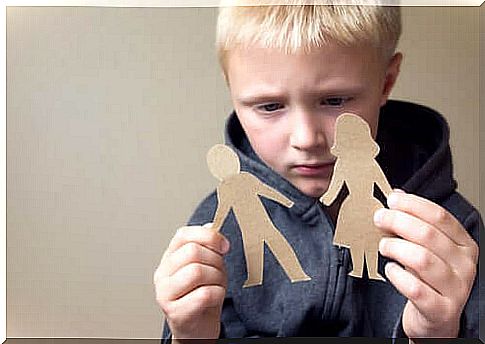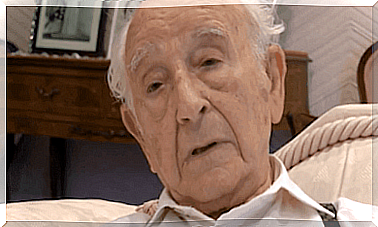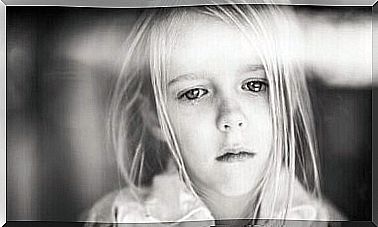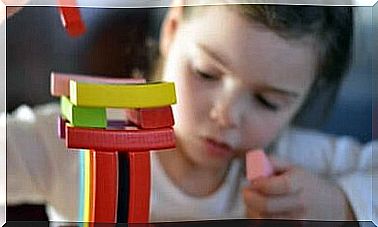Joint Or Unilateral Custody: The Impact On The Child

Divorce is one of those events capable of generating a great number of emotions. In this context, legal psychology pays special attention to one of the most vulnerable parts: the children. When a couple breaks up, many questions arise around the children: “Where will they live?”, “How often will they see each of their parents? Should we choose shared or unilateral custody?”
Although conditions do not always allow it, sometimes a problem remains in the hands of emotion that psychologists can solve: despite the differences, if the case permits, is shared custody recommended? Can the unilateral one have no impact on the child? Are there differences in your well-being comparing the two cases?

What does the scientific literature say about this?
Tejeiro and Gómez (2011) produced a meta-analysis, Divorcio, custodia y well-being of the minor: a review of investigations in Psicología, and their research concluded something the scientific community seemed to expect: there are differences in children’s well-being if they are is involved in a joint or unilateral custody process.
Both authors highlight what Bauserman (2002) has already stated after selecting 33 studies with the best parametric attributes: children in shared custody were better “adapted” than those in unilateral custody situations. He compared the adaptation of children in shared custody to that presented in intact families. This research is presented at the end of the article.
Some of the differences between guards that the various revised meta-analyses suggest are:
- Greater parental involvement with shared custody.
- Less depression in case of shared custody.
- More emotional adjustment problems in unilateral custody.
- Less sibling rivalry and greater self-esteem in shared custody.
- Greater tendency of the child to feel rejected by a parent in unilateral custody.
- Better self-concept, emotional locus and relationship with parents in shared custody.
Other studies reviewed, however, also include results that the type of custody has no effect on children’s emotional health.
The Effects of Shared Custody on the Family
Shared custody seems beneficial not only to children, but also to separated parents. This is how Marín Rullán (2015) conceives it, who states that low levels of conflict and high levels of communication represent a cooperative pattern in parents, thanks to which they have higher levels of satisfaction than parents who do not.
Conflict between parents is perhaps the most negative impact on children. So much of their well-being involves both parents’ ability to get along. Oftentimes, while it may be thought that joint custody is the best alternative for the child, it can also lead to greater contact between two people whose relationship has deteriorated. However, Tejeiro and Gómez also included this variable in their meta-analysis, finding that shared custody reduces the level of conflict between parents.
Another question that shared custody can raise is related to the obligation to see an ex-husband or ex-wife every certain period and not being able to heal open wounds. Studies suggest that this is nothing more than an irrational fear. The level of parental distancing, measured by Pearson and Thoennes (1990), tends to increase after two years, regardless of the type of custody.
What happens to these families 12 years later?
This was the question that Emery, Laumann, Waldron, Sbarra and Dillon (2001) asked themselves when they decided to analyze what happened in the families of those parents who had to choose between shared and unilateral custody (in the second, conflicts between parents were greater) . Among the conclusions they reached, the most striking was that the parents of children who lived under unilateral custody were very little involved in each other’s lives.
Furthermore, these authors found that parents with shared custody tended to make more changes in their lives and therefore also in the child’s life. However, this did not imply greater conflicts between parents, as it was related to aspects such as flexibility and cooperation.
The impact on child adaptation
Bauserman, in his meta-analysis Child Adjustment in Joint-Custody Versus Sole-Custody Arrangements: A Meta-Analytic Review , measures the child’s levels of adaptation to different types of custody. The adaptation to which it refers includes:
- Behavioral adaptation: behavior disorders.
- Emotional adaptation : depression, anxiety, problems in the locus of control, self-concept…
- Self esteem.
- Family and parental relationships.
- Academic achievement.
The finding that all these categories are higher in the child in joint custody than in the unilateral custody sustains that the former has a more positive impact on the child than the latter.

Shared custody: beneficial and complicated
After a complicated, painful process that sometimes affects those involved a lot, perhaps shared custody is not the choice that parents prefer at first. Even if your interest is in making sure your child has the most normal life possible, they don’t know how to manage this custody.
Regarding this difficulty, Marín Rullán seems clear: there are four factors whose presence can mark the success or failure of joint custody. Are they:
- Commitment and dedication : beyond the provisions of a court.
- Support for the other parent : respect for the bond between the other parent and the child, and active and separate involvement of both parents.
- Flexible distribution of responsibilities.
- Psychological characteristics : Cooperative behaviors tend to emanate more from people who are not narcissistic or vulnerable, who are empathetic and have positive parenting attitudes.
Knowing the results that are derived from both types of guard and taking into account the experiences of parents and children, perhaps the issue is not the choice between unilateral or joint custody, but c atom make parents acquire the necessary skills to cope well with shared custody after divorce.









